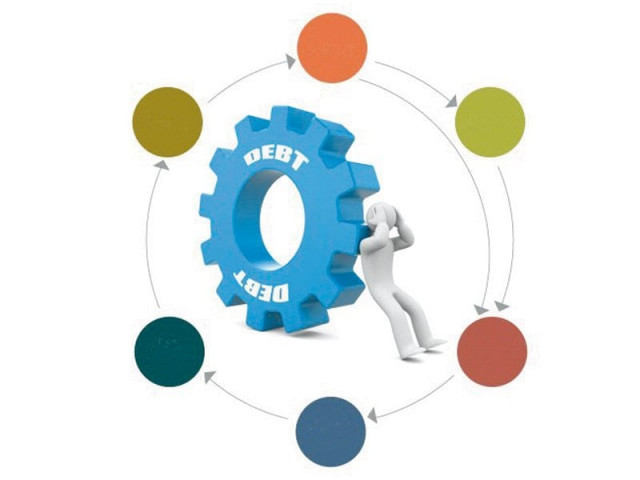Govt implements disputed decision
Pays first tranche of Rs8.2b to power plants of sugar mills for coal cost

The government has started implementing a controversial decision of the power sector regulator and paid the first tranche of Rs8.2 billion to power plants owned by five sugar millers on account of imported coal cost while they actually burnt sugarcane's byproduct for generating electricity.
An estimated Rs20 billion will be paid to the owners of eight bagasse-based power plants. Bagasse is a byproduct of sugarcane. These payments are being made in light of the controversial decision of the National Electric Power Regulatory Authority (Nepra).
The government is making payments to eight bagasse-based independent power producers (IPPs) with effect from October 2018. It will marginally inflate the monthly power bills of consumers but is against the government's ongoing drive to force the other IPPs to voluntarily change their power purchase agreements (PPAs).
Nepra allowed the payments despite objections by the Central Power Purchasing Agency-Guarantee (CPPA-G) and the caretaker government. In February this year, Nepra took the decision in favour of bagasse-based power plants, which was challenged by the government.
The development comes at a time when the government and the establishment are forcing the owners of IPPs to wind up their projects and renegotiate the terms to reduce the overall energy cost. However, in the middle of this campaign, the powerful groups owning these plants have been extended payments by Nepra.
Sources said that the CPPA-G made payments of Rs8.2 billion to five plants in the first phase in August. The agency on Thursday asked Nepra to recover the payment from consumers through the fuel price adjustment for August.
Owing to the Rs8.2 billion payment, the reference fuel price for bagasse-based power plants went up from Rs11.77 to Rs12.48 per unit. There is an increase of 77 paisa per unit that the residential consumers will pay through their electricity bills for October.
The 77 paisa cost is higher than savings of 60 paisa per unit that the government may achieve by forcing the owners of five power plants to shut down their units.
In the first phase, the government paid Rs840.3 million to Chanar Energy, Rs1.48 billion to Chiniot Power, Rs1.42 billion to Hamza Sugar Mills, Rs4.1 billion to two units of JDW and Rs399.3 million to Rahim Yar Khan Mills, according to the documents. Almoiz and Thai Industries did not receive any payment in the first phase.
The payments were made in the name of fuel cost worked out on the basis of the imported coal cost. However, these plants use bagasse as fuel for producing electricity. The PML-N's 2013-18 government had linked bagasse payments with the imported fuel.
Official documents showed that the caretaker government had opposed the decision to make the payments with effect from October 2018 and link it with the imported fuel.
"Nepra ordered to allow retrospective fuel component cost adjustment mechanism from October 2018 till September 2022 based on invoices including international coal price and bunker index despite CPPA's comments that bagasse is a locally produced fuel without any linkage with an international fuel," said the objections raised by the caretaker government in March this year.
The then energy minister Muhammad Ali had also objected to the Nepra's decision to give a 5% per annum increase in fuel cost component with effect from October 2022 without any consideration for the market price of bagasse or any other benchmark and despite the possibility that the market price may go down.
The caretaker government was of the view that Nepra's order would lead to a constant increase every year.
Nepra had made two fundamental decisions. It allowed the fuel cost component from October 2018 till September 2022 on the basis of international coal price and bunker index. It also gave 5% annual indexation on the applicable bagasse price for the previous year. However, it delinked the price from the imported coal with effect from October 2022. In 2019, Nepra took suo motu notice while finding the fuel cost component payments to these plants exorbitant. But the eight bagasse-based plants filed a writ petition in the Islamabad High Court, which suspended the decision and referred it to the Appellate Tribunal.
The tribunal in November 2022 set aside the decision of Nepra and remanded the matter to the authority for a fresh decision.
In March 2013, the then government was allowed to make payments for bagasse at par with international coal prices. Such decisions have now caused the electricity prices to jump to a record high of Rs65 per unit for the residential consumers.
In 2019, Nepra approved the bagasse price of Rs2,750/ton, similar to the one approved in the Upfront Tariff 2017 with 2% indexation after every two years. But now payments are being made at a price of Rs5,600 per ton.
During hearings, the representatives of these power plants pleaded that Nepra unlawfully and unreasonably changed the basis of fuel cost component determination through the 2019 modification, and withdrew and replaced the incentive, assurance and protection given in the Upfront Tariff Determination of 2013.
Millers termed Nepra's 2019 decision irrational because it was based on the pricing of sugar for 2016-17, when there was a bumper crop of sugarcane, resulting in low prices for bagasse.



















COMMENTS
Comments are moderated and generally will be posted if they are on-topic and not abusive.
For more information, please see our Comments FAQ